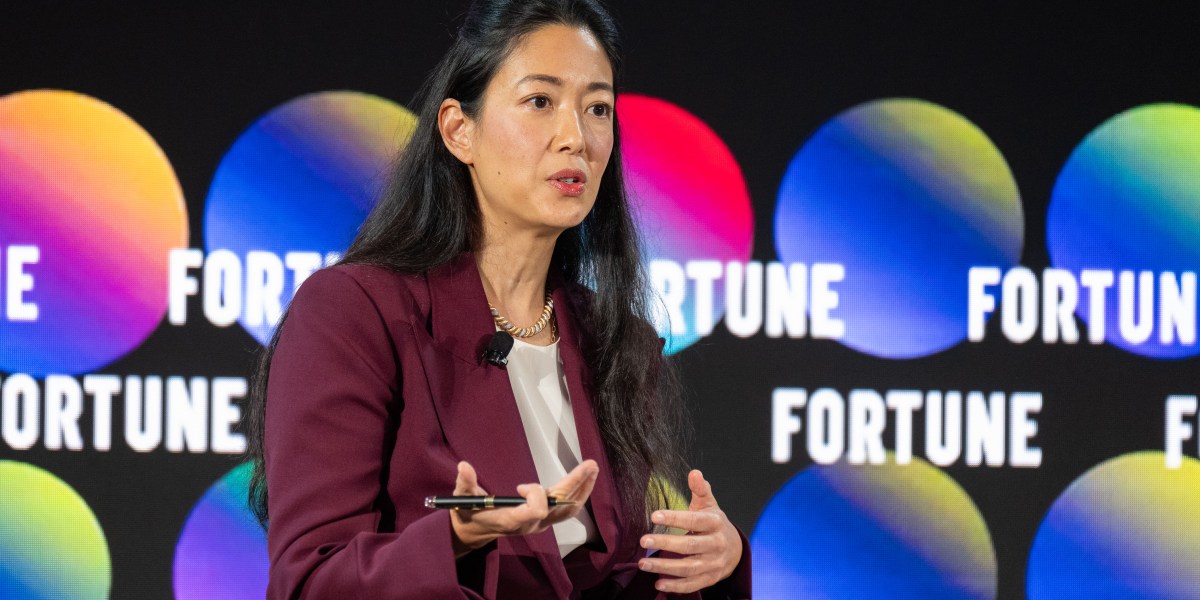Shangri-La CEO Kuok Hui Kwong on Asian hospitality: Not ‘silver candlesticks,’ but ‘attention to detail’

Most prominent hotel groups don’t actually own their hotels. Instead, when you stay at a Marriott or a Hilton, the building is often owned by someone else—usually a developer—while the hotel company handles the operations.
That’s not the case for Shangri-La Hotel and Resorts, founded by Malaysian tycoon Robert Kuok in 1971, and now led by his daughter Kuok Hui Kwong. The chain operates over 100 properties worldwide, over 80 of which are owned by Shangri-La.
Kuok Hui Kwong, speaking at the Fortune Innovation Forum on Tuesday, recalled why her father chose this asset-heavy model. “No one else was doing it. Land was very affordable, and I took a risk,” she recounted her father as saying.
The Shangri-La hotel chain has its roots in Asia, starting with its first hotel in Singapore. Around 80% of their hotels are still based in the Asia-Pacific region.
Kuok said the company’s success comes from the core tenets of Asian hospitality. “[Asian hospitality is] not white linen tablecloths, it’s not sterling silver candlesticks—it’s warmth and attention to detail,” she said.
Asia’s ballooning economy has also translated into more regional luxury hotel guests, Kuok observed. “Most of our guests today are no longer just people coming from North America or Europe—they’re coming from the [Asia] region,” she said.
Fifty-six Shangri-La properties are in mainland China, which Kuok called one of the world’s fastest-evolving economies. “[That’s] a market that has seen unparalleled economic growth in the last 30 years—which is a lot of wealth creation,” Kuok said. Yet companies need to be adaptive and number to stay ahead of the economy’s constant changes, she added.
For instance, to cater to China’s burgeoning middle class, Shangri-La opened a dual-brand hotel in Hongqiao in October. The development had two brands—the luxurious “Shangri-La” brand for more discerning business travelers, and Traders Hotel, which caters to more price-conscious tourists.
“With these sorts of flexible models, we’re able to compete in this market where there’s a lot of demand. We just launched and we’re seeing very, very optimistic occupancy rates already,” Kuok said.
According to a report by UN tourism, international tourism rebounded to pre-COVID levels in 2024, with most destinations exceeding 2019 numbers.
Yet in some markets, like Hong Kong, tourism spending remains suppressed as travelers opt for experiences rather than pricey shopping and expensive hotels.
“Consumers of luxury hospitality are no longer looking for the traditional trappings of luxury. They’re looking to experiences that give them that sense of comfort,” Kuok said. Also, they want to connect with things that feel authentic (i.e. local experiences), rather than “standard international hospitality”.
Shangri-La reported a slight 0.7% increase in revenue year-on-year for the first half of 2025, hitting $1.0 billion. Profit, however, slumped almost 40% to $57 million. Shares in Shangri-La Hotels and Resorts, a subsidiary of the Kuok-owned Kerry Properties, are down by around 13% for the year thus far.
‘To strive’
Kuok, No. 36 on this year’s Most Powerful Women Asia list, pointed to her father as the source for her approach to business. Robert Kuok, born in 1923, is one of Malaysia and Southeast Asia’s richest tycoons, with interests in plantation agriculture, oil, hospitality, property development and, at one point, ownership of the South China Morning Post, Hong Kong’s leading English-language newspaper. (Kuok Hui Kwong briefly served as the newspaper’s CEO.)
She said the Chinese phrase fen dou—”to strive”—was her guiding principle. “It’s the recognition that nothing is easy, but you should fully commit and go all in and never give up,” Kuok said.
“For me, I feel really, really fortunate that I grew up with a great teacher.”